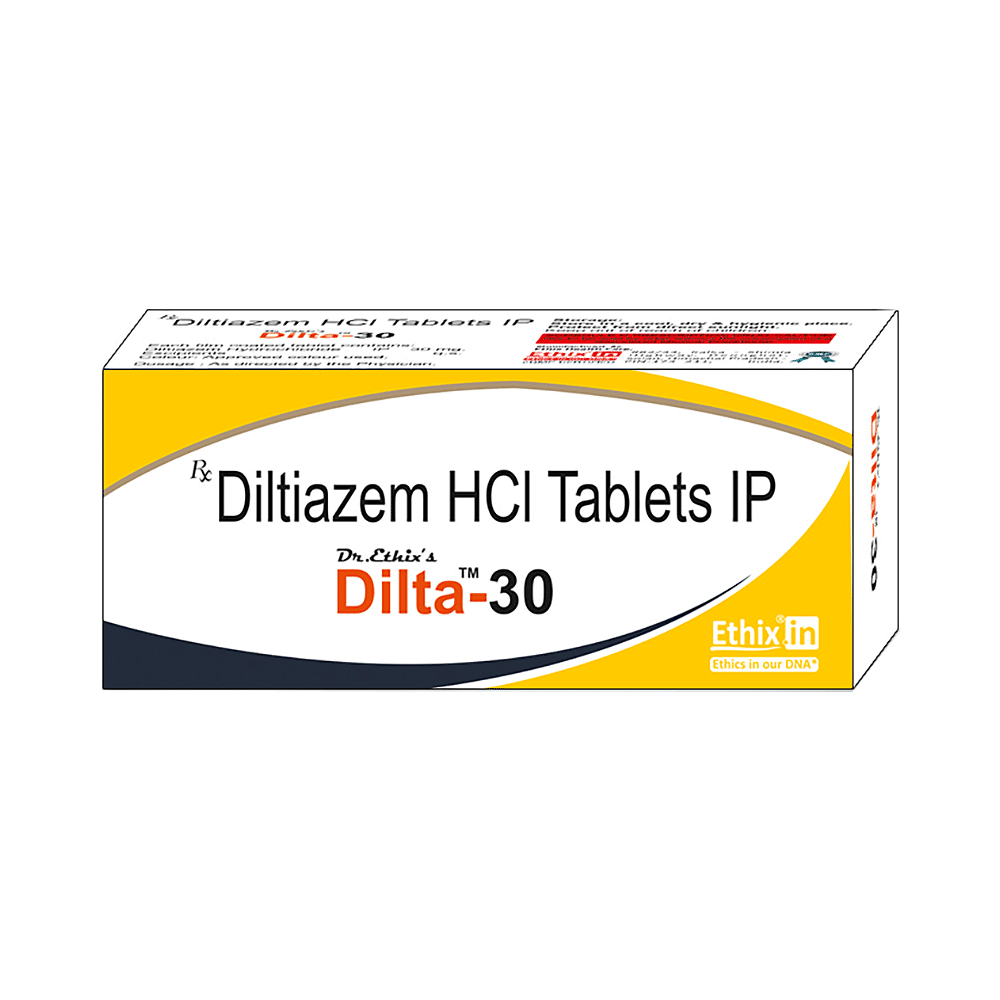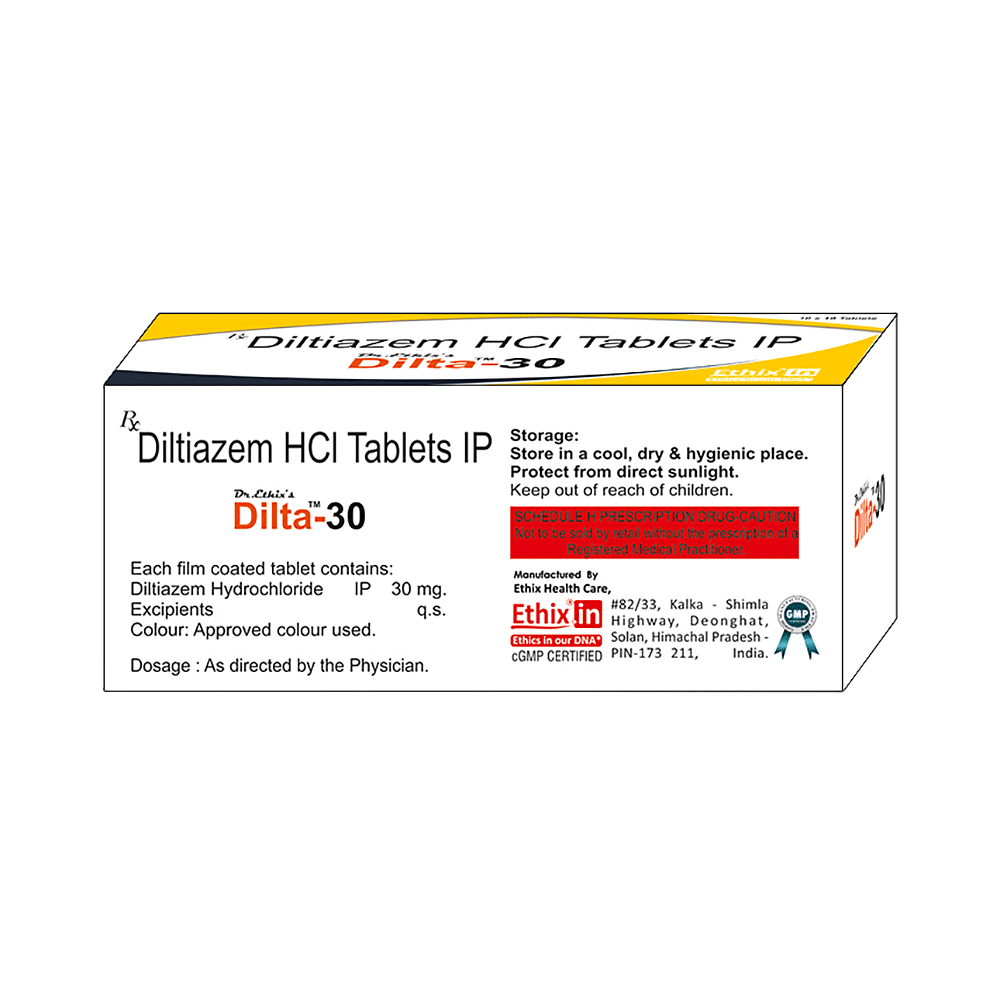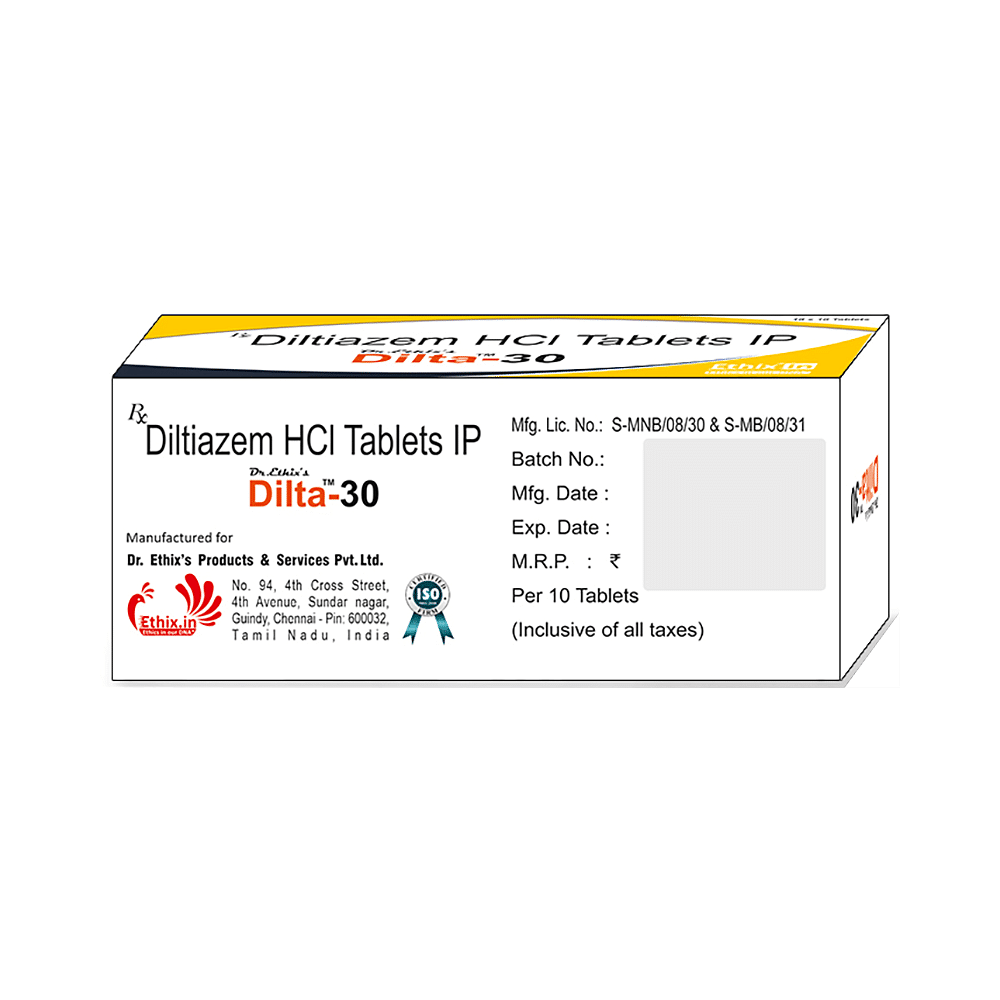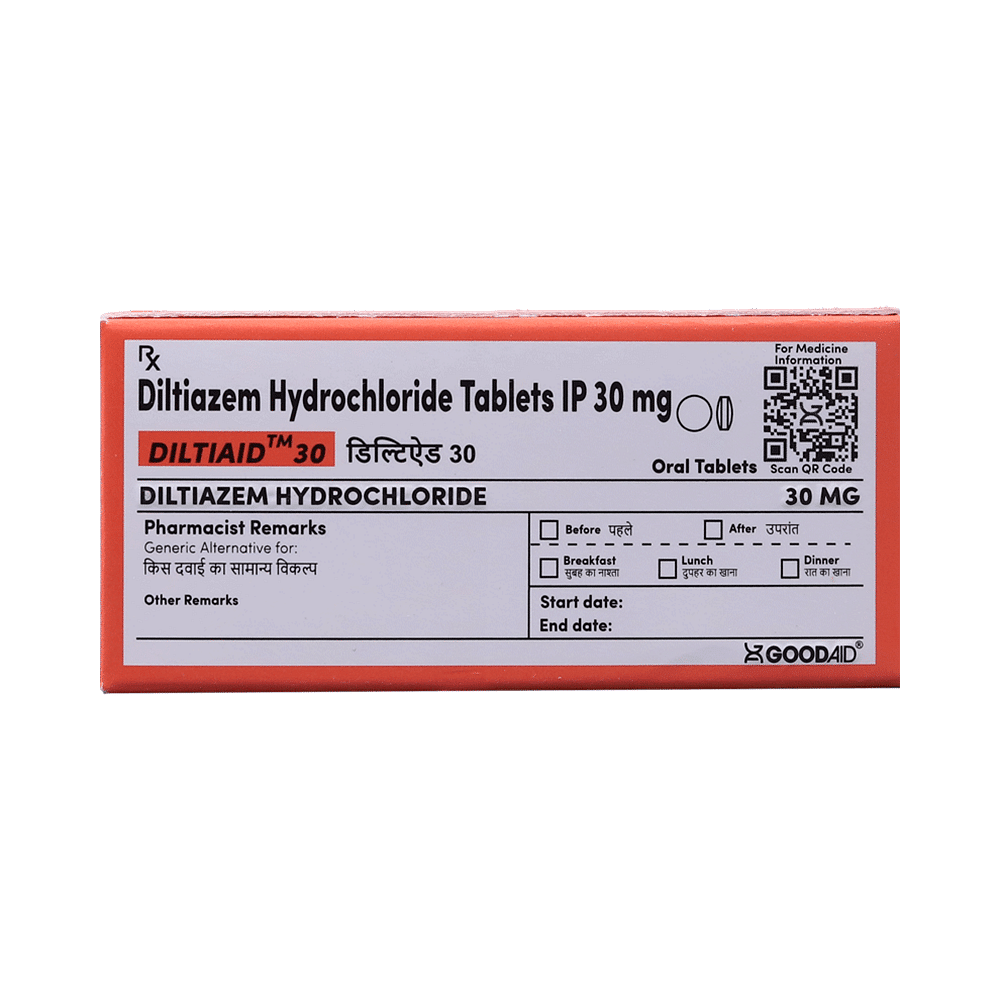


Dilta 30 Tablet
Manufacturer
Dr. Ethix's Product & Services Pvt Ltd
Salt Composition
Diltiazem (30mg)
Key Information
Short Description
Dilta 30 Tablet is used to treat angina (heart-related chest pain), high blood pressure, and some types of irregular heartbeats (arrhythmia).
Dosage Form
Tablet
Introduction
Dilta 30 Tablet may be taken with or without food, but it is better to take it regularly at a fixed time each day as advised by your doctor. Keep using this medicine even if you feel well. If you stop taking it suddenly, your condition may worsen. This medicine is only part of a treatment program that should include a healthy diet, regular exercise, and weight reduction as advised by your doctor.
Directions for Use
Take this medicine in the dose and duration as advised by your doctor. Swallow it as a whole. Do not chew, crush, or break it. Dilta 30 Tablet may be taken with or without food, but it is better to take it at a fixed time.
How it works
Dilta 30 Tablet is used to treat angina (heart-related chest pain), high blood pressure, and some types of irregular heartbeats (arrhythmia). It is known as a calcium channel blocker. It works by relaxing blood vessels to lower blood pressure. This helps to reduce the workload of the heart.
Quick Tips
Dilta 30 Tablet slows down the heartbeat and allows the blood vessels in the body to relax. This helps prevent angina attacks (chest pain caused by heart disease), certain abnormal heart rhythms, stroke, and heart attack. It may cause dizziness or sleepiness. Do not drive or do anything requiring concentration until you know how it affects you. It may cause you to feel lightheaded or weak especially when you stand up (orthostatic hypotension). Rise slowly if you have been sitting or lying down. It is best to avoid drinking alcohol while taking Dilta 30 Tablet as it may make the side effects worse. Do not stop taking it suddenly without talking to your doctor first.
Related Medicines

Diltiaid 30 Tablet

DILGINA 30MG TABLET

Triazem 30mg Tablet

Dilocor 30mg Tablet

Diltara 30mg Tablet

Dilt 30mg Tablet

Diltimark 30mg Tablet

Axzem 30mg Tablet

Manozem 30mg Tablet

Dilkab 30mg Tablet
Frequently asked questions
Is Dilta 30 Tablet a blood thinner?
No, Dilta 30 Tablet is not a blood thinner. It belongs to the calcium channel blocker class of medicines. It is used to treat hypertension, arrhythmias, and angina (chest pain caused by a reduction of oxygen to the heart muscle).
Does Dilta 30 Tablet cause weight gain?
Yes, Dilta 30 Tablet may cause weight gain in some individuals. If you are experiencing weight gain while taking Dilta 30 Tablet, consult your doctor or a nutritionist for personalized guidance.
Is it better to take Dilta 30 Tablet in the morning or at night?
It is generally recommended to take Dilta 30 Tablet at night and before meals. The specific dosage will be determined by your doctor, and should be taken exactly as prescribed.
Does Dilta 30 Tablet affect sleep?
Dilta 30 Tablet may cause insomnia, which is not experienced by everyone. If this persists, consult your doctor.
Who should not take Dilta 30 Tablet?
You should not take Dilta 30 Tablet if you are allergic to it, have an irregular or slow heartbeat, heart failure, or low blood pressure. It is also not recommended for pregnant women or those planning to become pregnant.
What are the symptoms of overdose of Dilta 30 Tablet?
Symptoms of Dilta 30 Tablet overdose may include: slow, fast, or irregular heartbeat, fainting, difficulty breathing, and seizures. It may also cause dizziness, confusion, nausea, vomiting, and increased sweating. Seek immediate medical attention if experiencing any of these symptoms.
How long do I need to take Dilta 30 Tablet? Can I stop it on my own?
Your doctor will determine the duration of treatment with Dilta 30 Tablet. Do not abruptly discontinue or adjust the dosage without consulting your doctor as this may worsen angina symptoms or increase blood pressure.
What should I avoid while taking Dilta 30 Tablet?
You should avoid alcohol consumption while taking Dilta 30 Tablet. Also, refrain from driving and operating heavy machinery if you experience dizziness, as it may lead to impaired coordination.
What are the serious side effects of Dilta 30 Tablet?
Serious side effects associated with Dilta 30 Tablet include severe allergic reactions, yellowing of the skin or eyes, nausea, extreme tiredness, unusual bleeding, bruising, loss of appetite, stomach pain. If experiencing any such symptoms, immediately consult your doctor and seek medical attention.


